COVID – the Wuhan coronavirus – is a lot of things. It’s a blunt object that has killed people, wounded our economy, driven people to acts of desperation, and revealed talentless Democrat politicians (and Mike Dewine) for the despots they are. Now the fear of coronavirus eats away at the very foundation upon which our country is based: the rule of law. Yes, its basis, the U.S. Constitution, is still there under glass somewhere in Washington, D.C., but what good is it if you can’t avail yourself of it in court in a timely fashion? “Justice delayed is justice denied,” former British Prime Minister William Gladstone is credited with saying. Justice is being denied all over the place.
Contrary to Black Lives Matter and antifa slogans, justice isn’t about getting your way, it’s about the equal application of it under the law.
Early in the pandemic, the California Judicial Council, which oversees the country’s largest court system, passed Rule 9. This rule suspended, or “tolled,” statutes of limitations for civil cases so much that they’re “virtually non-existent” in the opinion of a friend who works on defense cases. This pushes the dates for trial six months-plus beyond current statutes. In Orange County, if you got a date for a civil trial right now you’d be into August of 2021 and that date is aspirational at best. Twenty other states have “tolled” their statutes of limitations. While criminal trials are only under the umbrella of the 6th Amendment – a right to a jury trial and speedy trial – for participants in civil litigations, it sure feels like Gladstone was onto something.
A California plaintiff’s lawyer remarked to me the other day that a medical malpractice lawsuit that was at long last coming to trial was doing so virtually – and without a jury. This was for a variety of reasons, one of which was because getting a jury when so many people are enduring hardship is nearly impossible. There are some in-person juries, but only a limited number of courtrooms that can accommodate spacing of jurors and participants. Old people don’t want to be in the courthouse and mom and dad are busy trying to pick up extra shifts or homeschool the kids. No one has time. Attorneys with a sympathetic plaintiff want to be in front of a jury. Who’s more likely to grant a high award, a judge or a jury? Is this arrangement fair? Eventually, the desire for fairness and equal justice are going to outweigh the perceived danger of the ‘rona and plenty of people will want a do-over, if they’ve gotten a trial by that time.
Law.com reports that the courts are “nudging” plaintiffs and their attorneys toward bench trials – without a jury. It’s a real problem for attorneys who prefer in-person trials with a jury. It’s a problem for judges who are watching their dockets stack up. The system is in need of expeditious clearing, but at what cost?
Texas’ first attempt at a remote civil jury trial highlighted lawyers’ and litigants’ uneasiness with the concept.
As Angela Morris reported, the Aug. 19 Zoom proceeding before 57th Civil District Judge Antonia “Toni” Arteaga was nixed that morning after the jurors were sworn in because there were no attorneys who consented to allow their cases to proceed to a remote jury.
[…] Now, six months into the pandemic, trial-by-video-jury—at least in the civil context—is beginning to morph from experiment to expectation. And while lawyers aren’t totally sold on the concept, a growing chorus of judges is making clear that it may be the only way to keep their dockets moving.
Public perception of swift justice is taking a hit nationally as well.
The investigation into the biggest political scandal in recent U.S. history is slowed because of COVID. Attorney General William Barr admits that U.S. Attorney John Durham’s criminal investigation into the conspiracy by Obama administration officials to spy on Donald Trump’s campaign and administration was slowed by the inability to convene a grand jury. Worse, the 2020 U.S. presidential election might not have been such a painful exercise had the American people known the extent of the criminality in that scandal, which involved Joe Biden. Now, partly because of the COVID-induced delay, we may never know. A Joe Biden presidency may scuttle the COVID-delayed results of that criminal investigation for his obvious, personal reasons. How long before the hunger for justice exceeds our fear of a disease that for most adults is nearly 100% survivable?
USCourts.org revealed that even though the nation’s 94 U.S. districts have been safely holding jury trials, the recent increase in COVID cases has caused two dozen district courts to “suspend jury trials or grand jury proceedings.”
The districts posting recent orders are: Alaska; Arizona; Eastern District of Arkansas; Colorado; Northern, Central and Southern Districts of Illinois; Northern and Southern Districts of Indiana; Kansas; Eastern and Western Districts of Kentucky; Maine; Maryland; Minnesota; Western District of Missouri; Nebraska; Nevada; Northern District of Oklahoma; Western District of Pennsylvania; Western District of Texas; Utah; Eastern District of Virginia; Eastern District of Washington; and Western District of Wisconsin.
And the district courts are also having a tough time amassing jury pools.
In addition to health data, some orders cited growing difficulties in getting jurors to hear cases. “Citizens’ increasing inability and reluctance to serve on juries is understandable,” said a Nov. 6 order signed by Chief Judge D.P. Marshall, Jr., of the Eastern District of Arkansas, “but it creates the possibility that our juries will not reflect a fair cross section of the Eastern District.”
Virtual jurors must have access to the internet and have uninterrupted time to devote to a trial while in the comfort of their own home. Two Georgia mediation attorneys believe this sets up an unequal justice system that will come back to bite the court system.
In July, Winter Wheeler and Joe Murphey, both of whom serve as arbitrators and mediators in Atlanta at Miles Mediation & Arbitration, penned a commentary arguing that assembling virtual juries that reflect the diversity of Georgia’s communities would be difficult, if not impossible, given that many people across the state do not have access to reliable, high-speed internet and that any jury pool would likely have to be limited to people who either live alone or have the ability to sequester in their homes.
“The logjam of civil cases continues to deepen, and many attorneys and clients alike are understandably anxious to move their cases to conclusion,” they wrote. ”But it would be counterproductive and counterintuitive for Georgia to invest time and money into building an ad hoc system that we know in advance will be unjust. “
Law.com reports that virtual trials and other hasty fixes will lead to criminals tried under the new system having an appealable reason to get a new trial down the line.
“‘I did not get a jury of my peers because every person on my jury had to have a computer and a secure internet connection,’” Attanasio said, imagining how such a challenge might look.
Attanasio also doubted the ability to hold jurors’ attention while they’re viewing the proceedings through a screen in their homes.
“The risk of multi-tasking during a trial can be easily controlled in the courtroom, very difficult to control with a Zoom setting or other remote software setting,” he said. “So you have a juror who should be closely watching the evidence, but instead is reading the newspaper or playing a video game on his or her phone. How in the world would you police that?”
I’m a realist. I know some cases are perfunctory and can be conducted quickly. And it’s understandable that some chief judges want the bench and bar to cowboy up through the pandemic, but justice isn’t a commodity that can be made up for later, is it? It’s not like you can order up more justice by invoking the Defense Production Act. For most people, it’s a one-and-done experience. Who’s got resources for a do-over? If their judicial needs are slighted or delayed, is it justice?
In the United States, you don’t have a “right” to vaccines, ventilators, PPE, or rioting, but you do have a right to equal application of the law and, if you’re an accused criminal, a jury of your peers and a speedy trial.
Obama administration officials in the FBI, CIA, NSA, and State Department spied on Donald Trump and called him a Russian spy, undermining his ability to lead. The 2020 U.S. election is rife with issues that will corrode our trust in our nation’s one-man-one-vote system for generations to come if it isn’t given a proper judicial airing. Don’t allow COVID to take away our right to justice or we will have no country.
Victoria Taft is the host of “The Adult in the Room Podcast With Victoria Taft” where you can hear her series on “Antifa Versus Mike Strickland.” Find it here. Follow her on Facebook, Twitter, Parler, MeWe, Minds @VictoriaTaft


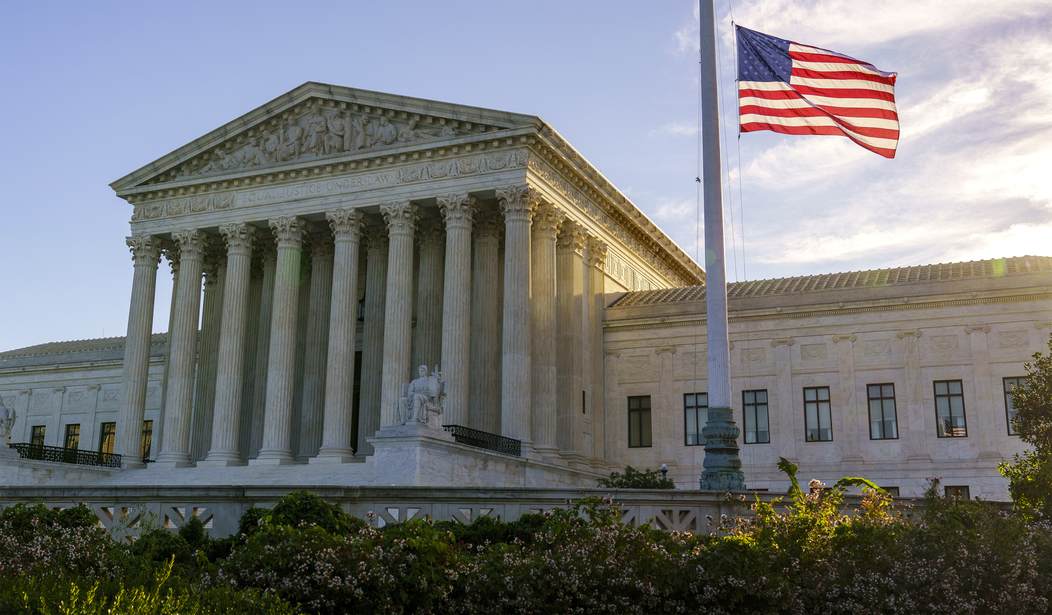

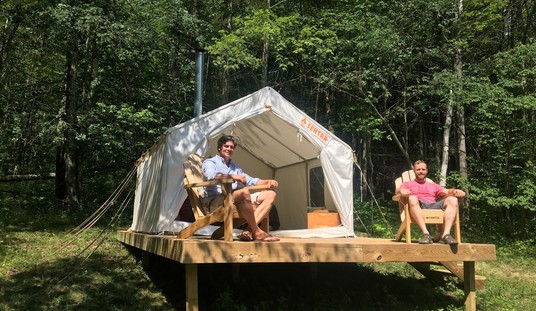
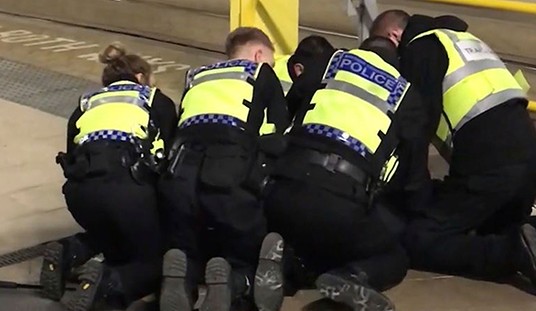


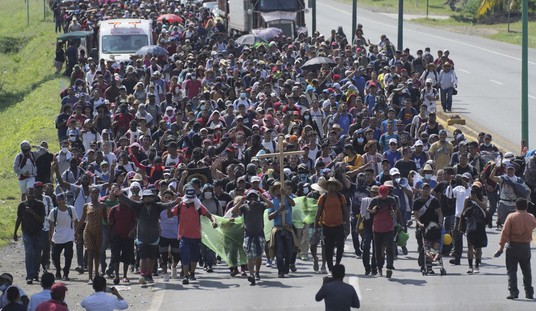
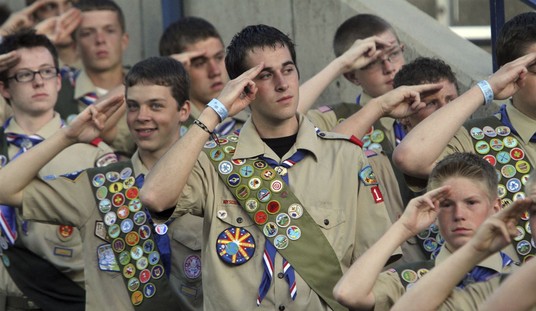
Join the conversation as a VIP Member